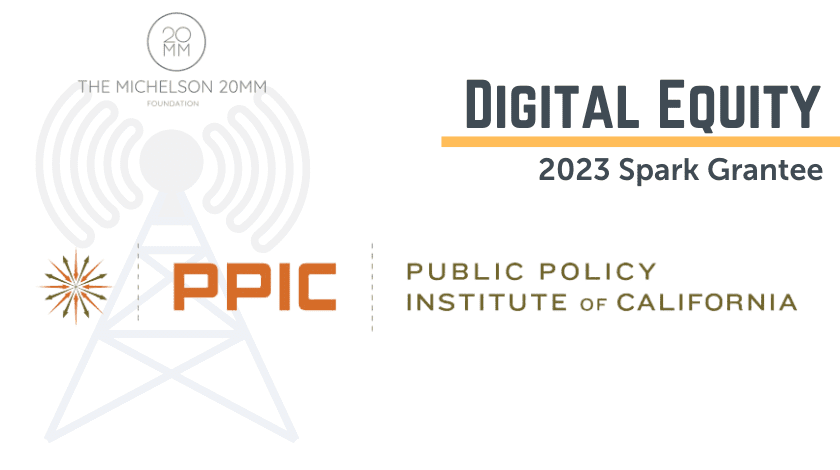News and Announcements
Is California’s $6B Broadband Investment Reaching Our Most Vulnerable Communities?
Published Date
- July 18, 2023

Through the Broadband Trailer Bill, SB 156, $6B was allocated to expand broadband infrastructure in California and also included funding to improve access to broadband. A historic investment, SB 156 allocated $3.25B to middle mile broadband infrastructure, $2B to broadband last mile support, and $750M to the state’s loan loss reserve fund. In addition to the state’s funding, the Federal Funding Account (FFA) also provides $2B for local communities to enhance last-mile connections. As California implements the 2021 legislation and takes massive strides towards digital equity, the next two years will be pivotal in ensuring the funding is used effectively. In fact, earlier this year, the state was slated to complete its 10,000 middle-mile network optimization decisions, which has the potential to serve millions of Californians.
The Public Policy Institute of California (PPIC), a Michelson Spark Grantee, will leverage their 2023 Spark Grant to analyze the implementation of SB 156. Building upon a prior grant that identified opportunities and challenges for the first year of SB 156 implementation, PPIC will seek to answer the following questions:
- How many and which communities changed their initial plans, and what are the structural barriers facing those communities?
- Are there any innovative models that could be scalable across communities across the state?
- How many and which communities applied to and received Local Agency Technical Assistance (LATA) funding?
- How many and which communities applied to and received funds from the Federal Funding Account?
To answer these questions, PPIC will survey communities throughout the state with the intent of understanding how each community plans to improve access within it. In addition to the surveys, PPIC will analyze data from the California Public Utilities Commission (CPUC) to determine if certain communities are more or less likely to receive state funding. Following their analysis, PPIC will facilitate the spread of innovative strategies and effective plans to reduce the digital divide, while also highlighting the promise of policies that allocate funding to enable these plans to create change.
At every stage of their project, PPIC will center the experiences and voices of marginalized communities, including Tribal communities, Blacks, Latinos, rural Californians, and low-income communities by conducting targeted outreach efforts. This is of particular importance since PPIC’s prior efforts uncovered inequities in the CPUC’s funding processes.
December 2023 Update: With the recent $1.86B federal Broadband Equity, Access, and Deployment (BEAD) program investment, PPIC is redirecting their efforts to provide the data stakeholders will need to ensure the funds are effectively implemented. To do so, they are employing a three-pronged approach: 1) Highlight existing inequities in broadband access; 2) Track and explore any disparities in last-mile awards; and 3) Update PPIC’s fact sheet on broadband access.
PPIC’s effort will seek to understand how community factors—such as median household income, the socioeconomic vulnerability index, and Calenviroscreen index—relate to broadband access. Keeping the needs of the community top of mind with respect to broadband funding, PPIC will also monitor which California communities receive last-mile awards with the goal of uncovering any commonalities that could lead to disparities. Finally, understanding that the state’s five-year action plan must be submitted by early 2025, PPIC will leverage the 2022 American Community Survey in their fact sheet, thus arming policymakers with the most accurate data as they advocate for their communities’ needs.
We look forward to sharing more in the year to come!
Michelson 20MM is a private, nonprofit foundation working toward equity for underserved and historically underrepresented communities by expanding access to educational and employment opportunities, increasing affordability of educational programs, and ensuring the necessary supports are in place for individuals to thrive. To do so, we work in the following verticals: Digital Equity, Intellectual Property, Smart Justice, Student Basic Needs, and Open Educational Resources (OER). Co-chaired and funded by Alya and Gary Michelson, Michelson 20MM is part of the Michelson Philanthropies network of foundations.
To sign up for our newsletter, click here.